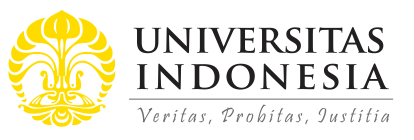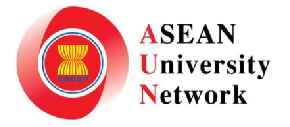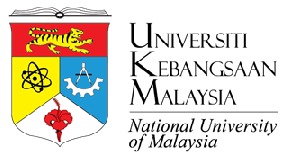
Abstract
This mixed-methods sequential explanatory study seeks to explain the relationship between community engagement and citizenship competence among tertiary-level students at Kolehiyo ng Lungsod ng Dasmariñas, a public institution of higher learning in Dasmariñas in Cavite, Philippines. Specifically, it seeks to (1) determine students’ level of engagement in various community development activities and their levels of citizenship competence; as well as (2) discuss and analyze the relationship between these two variables. Quantitative surveys were conducted on 331 students, followed by semi- structured interviews and focus group discussions with 30 purposely selected participants to gather follow-up data during the qualitative phases.
The survey revealed that tertiary-level students were deeply engaged in various themes of activities, from conflict resolution, environmental sustainability initiatives, economic efficiency efforts, sports and wellness activities, disease prevention programs, food security, and nutrition awareness promotion, and gender equality initiatives. They were moderately involved in disaster risk reduction, literacy enhancement, and innovation and technology activities. Further results indicate a significant relationship between students’ community engagement and citizenship competence, and the more students are engaged in community-based activities, the more they become competent citizens. The students’ values and attitudes and displayed citizenship competence are reflected in the categories of skills, knowledge, and critical understanding. Such positive relations demonstrate how students can foster positive attitudes, learn to value humanitarianism, and help build a sustainable community through community engagement activities.
References
Afzal, A., & Hussain, N. (2020). Impact of community service learning on the social skills of students. Journal of Education and Educational Development, 7(1), 55–70.
Alday-Bersoto, M. P. (2019). The impact of university-community engagement: An interpretative phenomenological analysis. Asia Pacific Journal of Academic Research in Social Sciences, 4, 30–33.
Ashida, A. (2022). The role of higher education in achieving the Sustainable Development Goals. In S. Urata, K. Kuroda, & Y. Tonegawa (Eds.), Sustainable development disciplines for humanity: Breaking down the 5Ps—people, planet, prosperity, peace, and partnerships (pp. 71–84). Springer Nature.
Aurelio, A. C., Cabale, M., Dimla, K., & Jamoralin, M. (2022). Students’ awareness of Cavite Agritourism: Basis for a proposed information campaign. International Journal of Social Science and Humanities Research, 10 (1), 98–122.
Baldridge, B. J., Beck, N., Medina, J. C., & Reeves, M. A. (2017). Toward a new understanding of community-based education: The role of community-based educational spaces in disrupting inequality for minoritized youth. Review of Research in Education, 41(1), 381–402. https://doi. org/10.3102/0091732X16688622
Bandy, J. (2011). What is service learning or community engagement? Vanderbilt University Center for Teaching. https://cft.vanderbilt.edu/guides-sub-pages/ teaching-through-community-engagement/
Barrett, M. (2021). Citizenship competences. Scuola democratica, 145–160. https://www. rivisteweb.it/doi/10.12828/100675
Basco-galangco, R., & Mamolo, M. F. M., Jr. (2017). Civic Welfare Training Service as a tool for connecting theory and practice. SUKIMAT, 3(1), 61–97.
Bernardo, A. B., Cordel, M. O., Ricardo, J. G. E., Galanza, M. A. M. C., & Almonte-Acosta, S. (2022). Global citizenship competencies of Filipino students: Using machine learning to explore the structure of cognitive, affective, and behavioral competencies in the 2019 Southeast Asia Primary Learning Metrics. Education Sciences, 12(8), 1–14. https://doi.org/10.3390/educsci12080547
Bidandi, F., Ambe, A. N., & Mukong, C. H. (2021). Insights and current debates on community engagement in higher education institutions: Perspectives on the University of the Western Cape. SAGE Open, 11(2), 1–11. https://doi. org/10.1177/21582440211011467
Braun, V., & Clarke, V. (2006). Using thematic analysis in psychology. Qualitative Research in Psychology, 3(2), 77–101. https://psycnet.apa.org/ doi/10.1191/1478088706qp063oa
Bua, F. T., & Dike, M. C. (2017). Achieving peace building through students’ participation in governance in Nigerian Universities. Journal of Educational Foundations, 3(1), 1–15.
Carlisle, S. K., Gourd, K., Rajkhan, S., & Nitta, K. (2017). Assessing the impact of community-based learning on students: The Community-Based Learning Impact Scale (CBLIS). Journal of Service-Learning in Higher Education, 6.
Contreras, D., & Aceituno, D. (2017). Learning to teach citizenship competencies through a school-university collaborative action research project. Procedia-Social and Behavioral Sciences, 237, 90–95. https://doi.org/10.1016/j.sbspro.2017.02.035
Edmonds, W. A., & Kennedy, T. D. (2016). An applied guide to research designs: Quantitative, qualitative, and mixed methods. SAGE Publications.
Eldardiry, Y., Anitsal, I., & Anitsal, M. M. (2021). Community engagement and service-learning as perceived by graduating students. Global Journal of Business Pedagogy, 5(1), 104–122.
Escorza, E. H., Escorza, Y. H., Medina-Aguilar, G., Cordero-Diaz, M. A., Martinez, R. M., & Leon, S. A. L. (2014). Study of citizen competences among students of a private university in Mexico. Research in Higher Education Journal, 22, 1–14.
Farnell, T. (2020). Community engagement in higher education: Trends, practices and policies. European Commission’s Directorate-General for Education, Youth, Sport and Culture. https://nesetweb.eu/en/resources/library/community-engagement-in-higher-education-trends-practices-and-policies/
Gruber, A. M. (2017). Community engagement in higher education: Online information sources. College & Research Libraries News, 78(10), 563–566. https://doi. org/10.5860/crln.78.10.563
He, B. J., Prasad, D., Pignatta, G., & Jupesta, J. (Eds.). (2022). Climate change and environmental sustainability. Springer.
Jacob, W. J., Sutin, S. E., Weidman, J. C., & Yeager, J. L. (Eds.). (2015). Community engagement in higher education: Policy reforms and practice. Sense Publishers.
Jain, M. (2009). Civics curriculum and the idea of citizen since late nineteenth century [Unpublished doctoral dissertation]. University of Delhi.
Jeffes, J., Lord, P., Bramley, G., Davies, I., Hampden-Thompson, G., Tsouroufli, M., & Sundaram, V. (2012). Creating citizenship communities through new approaches to learning: Survey of school coordinators and leaders on community cohesion and citizenship. National Foundation for Educational Research. https://www. nfer.ac.uk/publications/czen01/czen01surveyphasereport.pdf
Kim, S., Sinn, D., & Syn, S. Y. (2020). Personal health information management by college students: Patterns of inaction. Information Research, 25(1).
Kishino, H., & Takahashi, T. (2019). Global citizenship development. Journal of International Students, 9(2), 535–559. https://doi.org/10.32674/jis.v9i2.390
Korenius, S. (2018). Gender-sensitive education—A literature review of relevant toolkits for secondary school teachers in Eritrea. [Master’s thesis, Diaconia University of Applied Sciences].
Little, P., M. (2011). Expanded learning opportunities in Washington state: Pathways to student success. Child Care & Early Education Research Connections. http:// www.schoolsoutwashington.org/UserFiles/File/ELO%20Policy%20Brief%.
Mansione, I., Marcelino, E., Tewel, C., Zac, D., Rocha, T., Abrahao, L. M. N., Orduz, F., Fulco, M., C., Itlman, M., El Maluf, A., Pateiro, A., Tonolo, D., & Vale, A. L. (2022). “Together to build a life in common”: A solidarity approach to psychoanalytic interventions in the community. Journal of Global Health Neurology and Psychiatry, e2022009, 1–12. https://doi.org/10.52872/001c.36071
McAlister, S. (2013). Why community engagement matters in school turnaround. Voices in Urban Education, 36, 35–42.
McCowan, T., Leal Filho, W., & Brandli, L. (2021). Universities facing climate change and sustainability. Global University Leaders Council Hamburg. https://koerber-stiftung.de/site/assets/files/18824/guc_study_universities_facing_climate_ change_and_sustainability.pdf
Moreira, J. A., & Oliveira, C. S. (2022). Quantifying for qualifying: A framework for assessing gender equality in higher education institutions. Social Sciences, 11(10), 1–24. https://doi.org/10.3390/socsci11100478
Mravcová, A. (2016). Practical implementation of global citizenship education at the Slovak University of Agriculture. International Journal of Development Education and Global Learning, 6(1), 57–77. https://doi.org/10.18546/IJDEGL.8.1.05
Nifa, F. A. A., Lin, C. K., Rani, W. N. M. W. M., & Wei, O. J. (2018). A study on awareness of disaster risk reduction (DRR) among university students: The case of PETRONAS residential hall students. AIP Conference Proceedings, 2016(1). https://doi.org/10.1063/1.5055407
Orhan, R. (2020). The effect of school education on students’ participation in sports and physical activity and profiles of Individuals with physical activity and fitness habits in Turkey. African Educational Research Journal, 8(2), S287–S297.
Pacho, T. O. (2020). Global citizenship education in the era of globalization. In J. Keengwe (Ed.), Handbook of research on diversity and social justice in higher education (pp. 274–291). IGI Global. https://doi.org/10.4018/978-1-7998-5268-1.ch016
Schindler, L. A., Burkholder, G. J., Morad, O. A., & Marsh, C. (2017). Computer-based technology and student engagement: A critical review of the literature. International journal of educational technology in higher education, 14(1), 1–28. https://doi.org/10.1186/s41239-017-0063-0
Schleicher, A., & Ramos, G. (2018). Preparing our youth for an inclusive and sustainable world: The OECD PISA global competence framework. OECD. www.oecd.org/ education/Global-competency-for-an-inclusive-world.pdf
Serafini, P. G., de Moura, J. M., de Almeida, M. R., & de Rezende, J. F. D. (2022). Sustainable Development Goals in Higher Education Institutions: A systematic literature review. Journal of Cleaner Production, 370. https://doi.org/10.1016/j.jclepro.2022.133473
Siswati, S., Giatri, E., Safitri, Y., & Puri, I. Y. (2021). Health management of the college student during the COVID-19 pandemic. E3S Web of Conferences, 331, 01004. https://doi.org/10.1051/e3sconf/202133101004
Sogari, G., Velez-Argumedo, C., Gómez, M. I., & Mora, C. (2018). College students and eating habits: A study using an ecological model for healthy behavior. Nutrients, 10(12), 1823. https://doi.org/10.3390/nu10121823
Sullivan-Owomoyela, J., & Brannelly, L. (2009). Promoting participation: Community contributions to education in conflict situations. IIEP-UNESCO. http://unesdoc. unesco.org/images/0018/001833/183364e.pdf
Torsdottir, A. E., Sinnes, A. T., Olsson, D., & Wals, A. (2023). Do students have anything to say? Student participation in a whole school approach to sustainability. Environmental Education Research, 1–25. https://doi.org/10.1080/13504622.20 23.2213427
Young, K. (2022). Exclusive humanitarianism: Policy recommendations for genuine inclusion of persons with disabilities in humanitarian action. International Review of the Red Cross, 105(922), 396–415. https://doi.org/10.1017/ S1816383122000534
Zhou, L., Rudhumbu, N., Shumba, J., & Olumide, A. (2020). Role of higher education institutions in the implementation of Sustainable Development Goals. In G. Nhamo & V. Mjimba (Eds.), Sustainable Development Goals and institutions of higher education, (pp. 87–96). Springer International Publishing.
Recommended Citation
Bastida, Ernesto L. Jr.
(2023).
Relations Between Community Engagement Levels and Citizenship Competence Among Tertiary-Level Students at a Public Institution of Higher Education.
ASEAN Journal of Community Engagement, 7(1), 3-25.
Available at: https://doi.org/10.7454/ajce.v7i1.1218







